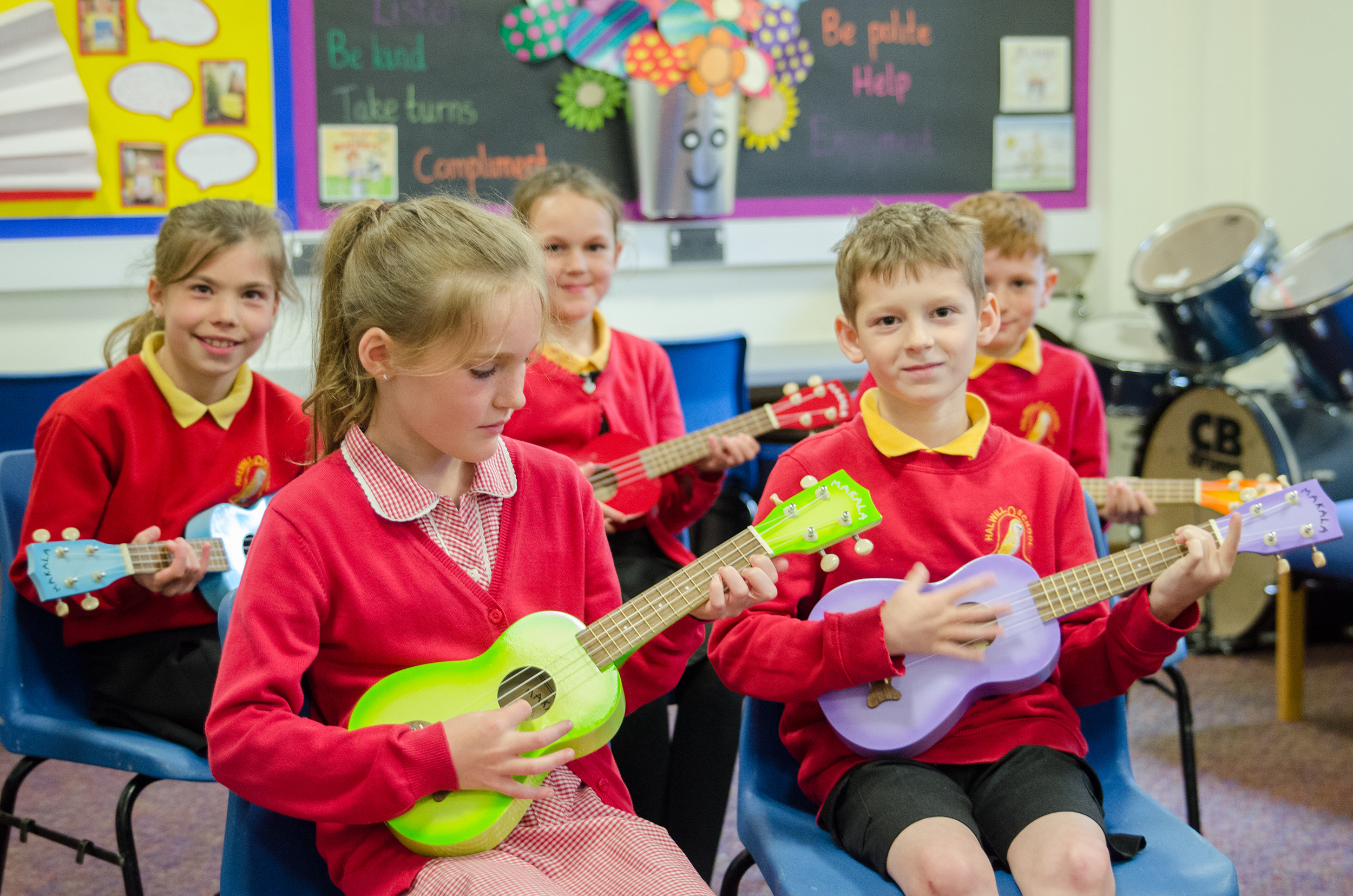Music Curriculum Statement of Intent
Our music curriculum aims to ensure that all pupils:
• Perform, listen to, review and evaluate music
• Be taught to sing, create and compose music
• Understand and explore how music is created, produced and communicated.
Our intention is that children gain a firm understanding of what music is through listening, singing, playing, evaluating, analysing, and composing across a wide variety of historical periods, styles, traditions, and musical genres. Our objective is to develop a curiosity for the subject, as well as gaining an understanding and appreciation for all types of music. We are committed to ensuring children understand the value and importance of music in the wider community, and are able to use their musical skills, knowledge, and experiences to involve themselves in music, in a variety of different contexts.
Within the Carey Federation we make music an enjoyable learning experience. We encourage children to participate in a variety of musical experiences through which we aim to build up the confidence of all children. Our teaching focuses on developing the children’s ability to sing in tune and with other people. Through singing songs, children learn about the structure and organisation of music. We teach them to listen and to appreciate different forms of music.
As children get older, we expect them to maintain their concentration for longer and listen to more extended pieces of music. Children develop descriptive skills in music lessons when learning about how music can represent feelings and emotions. We teach them the disciplined skills of recognising pulse and pitch. Also, we teach the children how to work with others to compose music and perform for an audience. Finally we ensure every child will have the opportunity to learn an instrument for a year where the children begin to read music and play as part of an ensemble.
Implementation
The music curriculum ensures students sing, listen, play, perform and evaluate. This is embedded in the classroom activities as well as the weekly singing assemblies, various performances, and the learning of instruments, the elements of music are taught in the classroom lessons so that children are able to use some of the language of music to dissect it, and understand how it is made, played, appreciated and analysed. In the classroom students learn how to play an instrument. In doing so understand the different principle of each method of creating notes, as well as how to read basic music notation. They also learn how to compose, focussing on different dimensions of music, which in turn feeds their understanding when listening, playing, or analysing music. Composing or performing using body percussion and vocal sounds is also part of the curriculum, which develops the understanding of musical elements without the added complexity of an instrument. Our music scheme of work is Charanga and it complements the curriculum and scaffolds the learning opportunities throughout the Key Stages.
Impact
Children are able to enjoy music, in as many ways as they choose- either as listener, creator or performer. They can dissect music and comprehend its parts. They can sing and feel a pulse. Music assessment is ongoing to inform teachers with their planning, lesson activities and differentiation. Summative assessment is completed at the end of each unit to inform leaders of the improvements or skills that still need to be embedded. Music is monitored throughout all year groups using a variety of strategies such as recordings, performances, folder/book scrutinises, pupil interviews.
Promoting our school motto and The Carey Qualities
Our desire is for our children to leave us with an appreciation of the joy of music and the skills to listen to, compose, perform and appraise musical pieces. Our curriculum for music is stimulating and creative, which enables children to build on their knowledge, skills and understanding of music each year, it enables children to ‘Aim High’ and ‘Be Resilient’ and work collaboratively, ‘Building Relationships’. We believe that music is a unique and powerful form of communication that can change the way children feel, think and act. It encompasses and embeds our school qualities to be reflective, resilient, resourceful and respectful through building relationships. Furthermore, we feel there is great value in combining creativity with emotion that enables personal expression, reflection and development – a life opportunity for the future.

We implement the curriculum through carefully planned sequences which enable children to learn new skills and knowledge , whilst consolidating previous learning. Mapping what is taught in each year group, allows teachers to plan for progression. Please see our progression grid below: